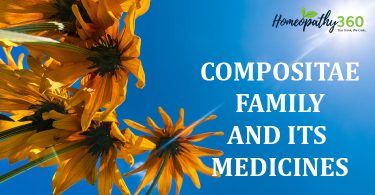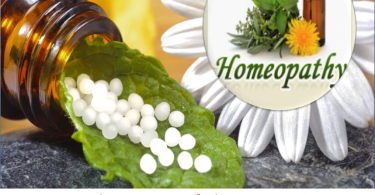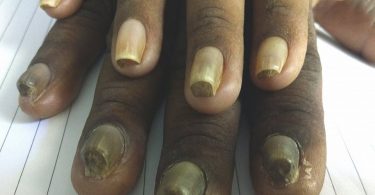Prof. Kolitha Sellahewa, Head of the Department of Internal Medicine at Dr. Neville Fernando Teaching Hospital elucidated in full, how to control and treat dengue affected patients through conventional methods, in my column on 3 June 2017. However, there appears to be two schools of thought in dealing with this deadly disease – Conventional v Homeopathic.
The orthodox way to treat patients according to Western medicine is by diagnostic tests, drugs, and surgery. Doctors who are bound by the Hippocratic oath have no faith in the efficacy of homeopathic preparations on the basis that those are not clinically proven. Contrary to such disparity, Homeopaths believe in using natural principles in the treatment of disease. With regard to dengue, they claim the two homoeopathic preparations, Abies Nigra, and Eupatorium Perfoliatum have, in their experience, helped many dengue affected patients to recover from the critical phase of sliding down to the Dengue Shock Syndrome stage.
Origins of Homeopathy
German physician, Samuel Hahnemann discovered Homeopathic as an alternative medicine in 1796 based on his doctrine ‘like cures like’ (law of similar).Nevertheless, critics of Homeopathy regard it as a pseudoscience that is incorrectly presented as scientific. Homeopathic preparations are manufactured using a process of dilution known as ‘potentisation’ in which a substance is mixed with alcohol or distilled water, and then briskly shaken repeatedly in a process called ‘succession’ until no molecules of the original substance remain. Finally the substance is termed as a homeopathic. The process is governed by consulting reference books known as ‘repertories’.
Sri Lankan perspective
Homeopathy is recognized in Sri Lanka and comes under the purview of Ministry of Indigenous Medicine. In addition, there is also Homoeopathic Medical Council. These two entities collaborate with the Presidential Task Force and the National Dengue Control Programme to implement a nationwide ‘prophylactic’ programme. In such a backdrop homeopaths are mystified as to why the government prohibits doctors to use homoeopathic drugs, even though some doctors are convinced in their own right. They claim it as an absolute crime to let patients suffer and die unnecessarily when some of the government doctors who would like to use the homoeopathic drug on dengue patients are restricted by rules and regulations.
The Rajapaksa regime allocated Rs 300 million in 2012 to the Dengue Control Unit. In the wake of a dengue epidemic today, the million-dollar question is whether the much-touted Presidential Task Force and National Dengue Control Programme had overlooked homeopathy as an effective solution to treat dengue patients.
Public advice
Dr. Mass R. Usuf, PhD, M (Acu), MFHom, published several articles in the national English press on Homeopathy Prevention and Cure. He had explained in detail to what extent the homoeopathic drug ‘Eupatorium Perfoliatum’ had cured hundreds of dengue affected patients from his own personal experience. In support of his claim, he said:
“Out of 24,000 flu cases, during the great influenza pandemic in 1918, the mortality rate after treating with orthodox medicine was 28.2 per cent; those treated homeopathically was only 1.05 per cent. (‘The Journal of the American Institute of Homeopathy, May 1921). The mortality rate after treating typhus fever in 1813 with conventional medicine was 30 per cent, whereas only 1 per cent with homoeopathic treatment. When cholera ravaged Europe in 1831, the mortality rate with conventional treatment was 40 per cent – 80 per cent whereas only 9 per cent was recorded with homeopathic treatment. (http:hpathy.com/homeopathy-papers/some-history-of-the-treatment-of-epidemics-with-homeopathy/).”
Notwithstanding, Homeopaths blame the health authorities in Sri Lanka for turning a blind eye when thousands become ill and hundreds die of dengue fever. They claim homoeopathic prophylactic is extremely cheap in comparison to tens of millions of rupees the government spends on Dengue Health Care. Homoeopathic drugs are free of side effects and could even be administered to a day old infant, they claim.
Colombo Forum
On behalf of the Muslim Aid Foundation in Sri Lanka, an interaction programme was held on 25 May 2017 at the Hector Kobbekaduwa Centre in Colombo. It was attended by eminent homoeopaths, professionals from various fields, and a medical officer from the Ministry of Health, members of the civil society including the President of the Homoeopathic Council and the press. The purpose of the conference was to find ways and means of educating the public about dengue in general, and to effectively distribute the prophylactic Eupatorium Perfoliatum widely.
Joe de Livera, CEO of an almost a century old business Organisation in Pettah, introduced himself as a living example of how the daily use of Arnica 30c (Homeopathic preparation) can benefit the user right up to old age. Joe aged 87 claimed, “I do not bear the usual signs of old age and do not sport any wrinkles on my skin, neither do I have any aches and pains in my body which is usually the price one pays for the advancing years. I do not take any allopathic drugs whatever except on a SOS basis, like after surgery. All my medical statistics are normal.”
Joe has pioneered in treating dengue since 2008 when dengue replaced Chikungunya in Sri Lanka. He prescribes Eupatorium Perfoliatum 200c in the wet dose, which is made by inserting 6-8 pellets into a 500ml bottle of water from which a dose of 10ml given every three hours as soon as the patient is proved to be positive to the Dengue Antigen Test. In his experience, the patient usually shows marked improvement in a few hours after the second dose, and the third dose usually makes the patient’s Platelet count to rise at the rate of around 2,500 per hour. Body pains, fever and vomiting usually leave the patient in a few hours after the second dose is administered, and the patent feels fit to be discharged, if warded in a hospital.
Personal experience
From personal experience, he finds many doctors who have used this ‘magic drug’ in their own clinics have confirmed that ‘it does wonders’ when compared to their own treatment protocol, but unfortunately there is a marked resistance to using this simple and safe remedy on the part of the SLMC, as their official position is that before any drug can be cleared for general use in hospitals it has to be subjected to tests, which usually take over six months to perform!
Joe spends about 2-3 hours on his own website (http://www.joedelivera.com) daily, and also assists any patient who consults him in office by giving his services and the medicines free of charge. He has ‘simplified’ Homeopathic in a practical manner to work more positively, while the conventional Homoeopaths beat about the bush, as instructed by the classical exponents of this science, and often derisively classify his treatment as ‘Jopathy.’ ‘I am not alone in my “this for that therapy’ says Joe, and refers those interested to visit the website of Prasanta Banerjee Homoeopathic Research Foundation (http://www.pbhrfindia.org/).
Those doctors who are convinced on the effects of using Eupatorium Perfoliatum 200c in the Wet dose have been informed that this homoeopathic remedy is already being used by patients who are aware of its availability free of charge in a few centres throughout Sri Lanka in bottles of water, medicated in the manner described, but the urgent need today, he asserts, is to ensure that it is available in all hospitals in Sri Lanka to arrest the current rate of fatalities that is reported to be well over 200 mark for 2017.
Normal practice
It is a sad affair that due to various indispositions of the human body many hospitals are unable to provide beds for thousands of patients daily, as such it has become the normal practice having two patients sharing a single bed such as Kalubowila, due to the high incidence of warded patients. Rather tragic indeed to witness some patients having to sleep on mats on the floor, even after undergoing minor surgery. What’s more shocking is to record few hospitals (like Ragama) having to send dengue patients back home after inserting a Cannula in the hand with Dextrose IV solution connected with instructions for use at home. This is purely due to the fact that absolutely there is no space in the wards to accommodate the many thousands who seek treatment today.
In the present context, dengue is identified as the Type 2 virus that is spreading at epidemic levels, which is the most difficult of the four types of the virus to treat. In such a backdrop Joe de Livera strongly feels that commonsense should prevail on the authorities to give the green light, at least to test it out on a few patients, to verify how this remedy “Eupatorium Perfoliatum” 200c in the Wet dose can cure dengue patients. Adding further, he says that there is absolutely no objection whatsoever for hospitals to continue with the standard treatment protocol because all that is necessary is the relieving water-mixture is given to patients, while a physician in the ward can verify results.
Major issues
Joe de Livera voluntarily and very generously offered to supply 10,000 globules of Eupatorium Perfoliatum which can be used to activate a few thousand bottles of water free of charge to any organization that can distribute the water to patients. It was concluded that what is urgently needed is to contact and educate the public about this homoeopathic drug through community centres, places of worship and principals of schools and to make the drug available at those centres free of charge. Alternatively, to request various philanthropic agencies to buy this inexpensive prophylactic and make it freely available to the public or to supply them in smaller bottles or sell at a negligible cost to the public. Adequate publicity through the press, television, and the social media (Face Book) was recommended as the most pressing issue in getting the message across to the public. To dispel any inherent fears about this remedy, it was also suggested to have a qualified homoeopathic doctor at each Centre on the days of distribution.
There has, however, been no emphasis curing dengue with any drug, as there is none listed in the pharmacopoeia of drugs available worldwide. It is homeopaths’ fervent hope that the Sri Lanka Medical Council (SLMC) will wake up to realities and accept their plea and commence the trials, which they consider as being essential to use this miracle remedy to cure dengue immediately.





